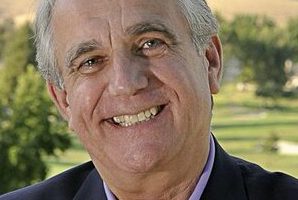Column: CEO Learnings
Little has been written about President Dwight D. Eisenhower’s faith journey. Those who wrote about Ike’s faith generally characterized it as something that was politically expedient. He was accused of using his religious faith only as a means to stir up patriotic fervor during the Cold War.
In The Soul of an American President: The Untold Story of Dwight D. Eisenhower’s Faith, authors Alan Sears and Craig Osten tell a different story. They trace his largely unexplored spiritual journey from his Bible-centered childhood to his last breath when he closed his eyes, and told longtime friend, Dr. Billy Graham, “Thank you, I am ready…I want to go, God take me.”
President Richard Nixon who had served as vice-president under Ike said in his eulogy, “Dwight Eisenhower was a product of America’s soil and of its ideals, driven by a compulsion to do well; a man of deep faith who believed in God and trusted in His will.”
Ike’s story is not unlike other Americans whose faith journey is not a straight line but rather, one filled starts and stops, deviations…and then the Journey home. He distanced himself from his parent’s religion as they forsook their River Brethren denomination to join the Bible Student Movement, which was to become the Jehovah’s Witnesses. He then drifted away from regular church attendance during his years in the military. The tragic loss of his young son, Icky, (“a loss from which he never healed” which was particularly difficult for him and his wife, Mamie, complicated the journey as it stirred up unanswered questions of faith.
Ike’s faith was renewed during World War II. He leaned on his beliefs more and more as he grappled with the grave responsibility of being the Supreme Commander of the Allied Forces on D-Day, the discovery of the horrors of the Holocaust, and then the potential for the extermination of the human race in the Cold War.
Ike would be baptized after he became president not before. He did not want anyone to view his baptism as something he was using to gain a political advantage. The event was designed to be private, but its news made headlines due to a leak by the National Presbyterian Church’s pastor. Ike’s faith was very personal and private.
Ike would go on to play a central role in nurturing a spiritual awakening in the United States, approving the insertion of the words “under God” into the nation’s Pledge of Allegiance (he felt this was a way of affirming the transcendence of religious faith in America’s heritage and future), and positioning religious faith as America’s true advantage over the atheistic Soviet Union – “a war of light against darkness, freedom versus slavery, godliness versus atheism.” He believed, as the authors point out, that Divine Providence guided this nation’s founding.
Sears and Osten wrote this book over several years as they dug into documents and interviewed those still living. The Soul of an American President offers the examination of many facts ignored until now. “The record is clear, the facts in the historical record shows that Ike was a man of firm, personal faith. His character and conduct, both in and out of office, show unmistakable signs of the influence of his religious beliefs.”
One can find parallels in Ike’s growing reliance on God to that of Abraham Lincoln who was burdened with the Civil War. Their lives were similarly changed by the loss of a son. And both found through humility that God and faith provided a way forward when faced with the great battles between light and darkness.
RELATED RESOURCES:
- The Soul of an American President: The Untold Story of Dwight D. Eisenhower’s Faith, by Alan Sears and Craig Osten
View Articles Thomas M. Loarie is a popular host of The Mentors Radio Show, the founder and CEO of BryoLogyx Inc. (BryoLogyx.com), and a seasoned corporate... MORE »



You must be logged in to post a comment.